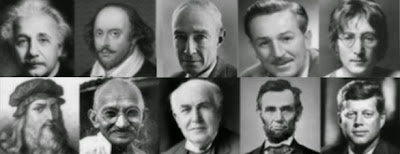Who was Capote, Truman | Biography

Capote, Truman (1924-1984)
American writer, born in New Orleans on September 30, 1924 and died in Los Angeles on August 15, 1984, whose production has established himself as one of the leaders of the neo-romantic South School. His real name was Truman Strekfas Persons, but is best known internationally for his literary pseudonym, Truman Capote.
Child of divorced parents, Capote had to be educated by other relatives and spent most of his childhood in Alabama accompanied by four elderly. Even as a child he began to collect written descriptions of everything around him. He studied at Trinity School and St. John's Academy in New York. At 17, he published for the first time, one of his short stories. After holding various jobs, which included the dancer on a riverboat and radio scripts broker, entered in The New Yorker for a position in their offices.
He had managed to publish in newspapers, when at age 19 he won the O. Henry Prize with a story entitled "Miriam". In 1943 he entered the world of the novel Summer crossing, which was not published until 2005; Capote always had hidden in a drawer because he considered mediocre. He became famous after the publication in 1948 of the novel Other voices, other rooms (Other Voices, Other, 1970), written at twenty-three and unquestionable autobiographical aspect; is one of the first novels that openly describes male homosexuality. We followed the Observations (1949) and Local color (1950) tests, and in 1951 comedy The grass harp (The Grass Harp, 1980), along with the collection of stories published in 1949 under the title of nihgt Tree (Tree night, 2000), which included the story "Miriam".
In these early works Truman Capote and showed as a skillful storyteller able to fuse the grotesque and fantastic humor and horror. Capote's articles published in prestigious journals such as The New Yorker, Story, Vogue and Theater Arts, dazzled by achenes years between the New York intelligentsia. Increasingly linked to the film world in 1954 collaborated in the scenery of the film Beat the Devil. That same year would be severely affected for ever after the suicide of her mother, unable to cope with its economic problems; Capote wrote in a letter to a friend: "He should not have died I had money..."
In 1956 he published The Duke in His Domain (The Duke in his domain), which depicts the figure of actor Marlon Brando, including his alleged homosexual and his mother's alcoholism meetings, which earned him a lawsuit for slander; Capote had met the actor during his stay in Kiota, accompanied by Cecil Beaton, during the filming of the movie Sayonara (1957).
In 1954 he published The Muses are Heard (The Muses are heard), a book with little impact but Capote considered one of his best works. This is a compilation of articles previously published in The New Yorker, describing the adventures of an American theater company in the USSR. Five years later came to bookstores one of their biggest hits, the novella Breakfast at Tiffany's (Breakfast at Tiffany, 1958), can be considered a parenthesis within its baroque, hallucinated and blending of fact and fiction style; Breakfast at Tiffany was filmed with great success by Blake Edwards in 1961, which created one of the most delightful comedies in film history, with Audrey Hepburn in the role of crazy young protagonist.
Opened in 1966 Capote In Cold Blood (In Cold Blood, 1972), a new narrative genre, the novel-document, or "nonfiction novel". Journalistic style, the novel is a faithful account of the multiple murder of the Clutter family and the lives of murderers, while a deep study of American society during those years. The idea for the book came on November 16, 1959, when Capote read in The New York Times about the murder of Cutter and decided to investigate the case, interviewing neighbors of the characters and even the murderers themselves, work that is it lasted for six years. The book made him one of the most popular and successful authors of his country; the most prominent entertainment personalities and finance attended the launch party for the novel, held at the Plaza Hotel in Manhattan and considered by many to be the party of the decade. In Cold Blood was also made into a film, this time by Richard Brooks in 1967.
In the production of Truman Capote these, always repulsive and evil for the puritanical American society sanctimonious sexual ghosts appear frequently. In 1980 he published Music for Chameleons (Music for Chamäleons), a work that is placed between the narrative, the story and the story. In this work the author was defined with these words: "I'm an alcoholic drug addict I am I'm gay I'm a genius....".
Other works include: The guest's Day Thanksgiving (1969), the script for the musical House of Flowers (1954) and Answered Prayers (Answered prayers), novel that was working at the time of his death and which was published posthumously. As for his relationship with the film, he also wrote screenplays for John Huston and Italian director Vittorio De Sica.
Eternal persecutor of the "perfect work, Capote never managed to win the Pulitzer and the National Book Award and but was twice awarded the O. Henry Prize Stories and was a member of the National Institute of Arts and Letters.
In 2004, Random House published The complete stories of Truman Capote, a compilation of all stories written by Capote included one unpublished: "The Bargain". In 2005 Garald Clarke, the "official biographer" Capote edited a volume of over seven hundred pages that meets the author's letters: Too brief a treat (A fleeting pleasure, 2006). Also in 2005 was released in the US the film Capote, which again raised enormous interest by the author of New Orleans; what is rounded out with the appearance of a fleeting pleasure, a book in which his complete correspondence is collected.
Universal DVD Encyclopedia © Micronet SA 1995-2006
Translated for educational purposes.